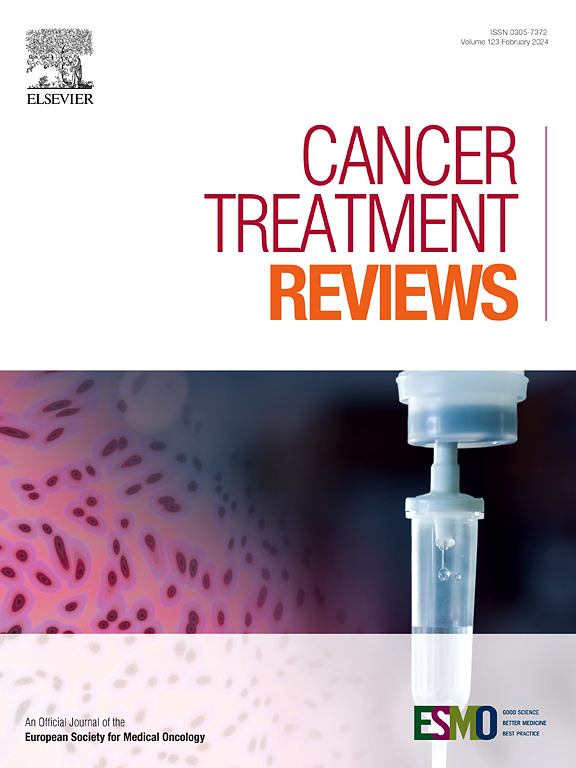Diagnosis and management of bispecific T cell–engaging antibody toxicity: A primer for emergency physicians
IF 9.6
1区 医学
Q1 ONCOLOGY
引用次数: 0
Abstract
Background
T-cell-engaging bispecific antibodies (BsAbs) are a newer type of immunotherapy designed to boost T-cell cytotoxicity. They are increasingly used in cancer treatment, with drugs currently being tested and authorized for treating both liquid and solid tumors. It’s becoming more likely that emergency physicians and other acute care practitioners will treat patients experiencing adverse events related to bispecific antibodies, as these drugs are regularly given in the outpatient setting. Currently, BsAb-associated side effects are not routinely taught to Emergency Medicine residents, and a paucity of literature exists to guide currently practicing Emergency Medicine physicians and other acute care practitioners about these medications.
Objective of the review
This review was written by emergency medicine physicians in collaboration with oncologists who routinely administer BsAbs to provide guidelines and an overview on diagnosis, treatment, and management strategies for adverse events related to bispecific antibodies.
Discussion
Side effects related to BsAbs require a multidisciplinary treatment approach ideally with oncologists notified early when an adverse event is suspected. Symptom presentation is subtle with BsAb toxicity and the main adverse events to consider working up are cytokine release syndrome, immune effector cell neurotoxicity, and infection. The article also discusses unique side effects specific to FDA-approved drugs to treat leukemia, multiple myeloma, lymphoma, lung cancer, and melanoma given that this drug class has heterogeneous receptor-specific side effects.
双特异性T细胞参与抗体毒性的诊断和管理:急救医生的入门读物
t细胞参与双特异性抗体(BsAbs)是一种新型的免疫疗法,旨在增强t细胞的细胞毒性。它们越来越多地用于癌症治疗,目前正在测试和批准用于治疗液体和实体肿瘤的药物。急诊医生和其他急症护理人员越来越有可能治疗与双特异性抗体相关的不良事件,因为这些药物经常在门诊使用。目前,bsab相关的副作用并没有常规地教授给急诊医学的住院医师,并且缺乏文献来指导目前执业的急诊医学医生和其他急症护理从业人员使用这些药物。综述的目的:这篇综述是由急诊内科医生与常规使用bsab的肿瘤学家合作撰写的,旨在提供双特异性抗体相关不良事件的诊断、治疗和管理策略的指南和概述。讨论与bsab相关的副作用需要多学科治疗方法,理想情况下,当怀疑发生不良事件时,肿瘤学家应及早通知。BsAb毒性的症状表现很微妙,需要考虑的主要不良事件是细胞因子释放综合征、免疫效应细胞神经毒性和感染。本文还讨论了fda批准的治疗白血病、多发性骨髓瘤、淋巴瘤、肺癌和黑色素瘤的药物的独特副作用,因为这类药物具有异质受体特异性副作用。
本文章由计算机程序翻译,如有差异,请以英文原文为准。
求助全文
约1分钟内获得全文
求助全文
来源期刊

Cancer treatment reviews
医学-肿瘤学
CiteScore
21.40
自引率
0.80%
发文量
109
审稿时长
13 days
期刊介绍:
Cancer Treatment Reviews
Journal Overview:
International journal focused on developments in cancer treatment research
Publishes state-of-the-art, authoritative reviews to keep clinicians and researchers informed
Regular Sections in Each Issue:
Comments on Controversy
Tumor Reviews
Anti-tumor Treatments
New Drugs
Complications of Treatment
General and Supportive Care
Laboratory/Clinic Interface
Submission and Editorial System:
Online submission and editorial system for Cancer Treatment Reviews
 求助内容:
求助内容: 应助结果提醒方式:
应助结果提醒方式:


